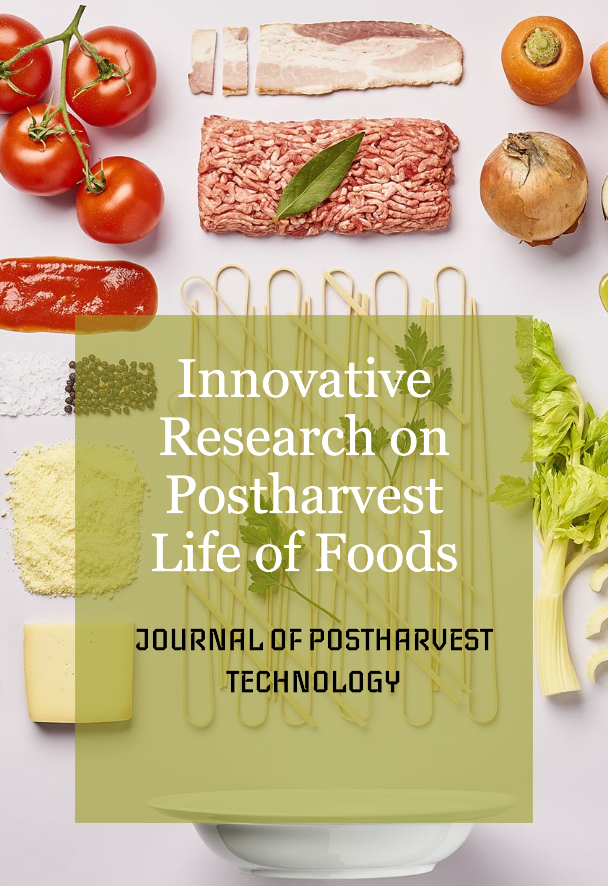Biofortification of fruits for improved nutritional and postharvest quality
Keywords:
Fruit, Biofortification, Malnutrition, PostharvestAbstract
Deficiency of micronutrients and vitamins in human body can lead to diseases, disabilities, stunted physical and mental growth. Biofortification of food crops can be a solution for overcoming problems of malnutrition and hidden hunger. Biofortification is the process of increasing deficient micronutrients in the desirable plant parts through fertilization, breeding and transgenic approach. It is a cost-effective and sustainable approach to provide nutrition to the under-privileged population. Other than biofortification of staple food crops, fruit crops can also be targeted. Fruits are already rich in health promoting substances like vitamins, minerals and antioxidants which are required for proper functioning of human body. Fruits like banana, strawberry, apple, mango, etc. have been biofortified adopting various techniques. The two challenges that are faced in the process of biofortification of fruits are the development of nutrient rich variety and adoption of improved variety by the farmers.
References
Bañuelos, G.S., Stushnoff, C., Walse, S.S., Zuber, T., Yang, S.I., Pickering, I.J.
and Freeman, J.L., 2012.
Biofortified, selenium enriched,
fruit and cladode from three
Opuntia Cactus pear cultivars grown
on agricultural drainage sediment
for use in nutraceutical foods. Food
chemistry, 135(1), pp.9-16.
Daum, D., Meinecke, C., Budke, C., Faby, R. and Wijaya, K.A., 2016.
Biofortification of strawberries with
iodine by soil and foliar application.
Berichte aus dem Julius Kühn
Institut, In press.
Dimpka, C.O. and Bindraban, P., 2015. Fortification on micronutrients for
efficient agronomic production.
Agronomy for Sustainable
Development, 36, pp.1-26.
Feugang, J.M., Konarski, P., Zou, D., Stintzing, F.C. and Zou, C., 2006.
Nutritional and medicinal use of
Cactus pear (Opuntia spp.) cladodes
and fruits. Front Biosci, 11(1),
pp.2574-2589.
Grunes, D.L., and W.H. Allaway. (2008). Nutritional quality of plants in
relation to fertilizer use. In O.P.
Engelstad (ed.) Fertilizer technology
and use. SSSA, Madison, WI. p.
–619.
McGuire, S. FAO, IFAD, and WFP. 2015. The state of food insecurity in the
world 2015: meeting the 2015
international hunger targets: taking
stock of uneven progress. Rome:
FAO. Adv. Nutr., 6(5): 623-624.
Namanya, P., 2011. Towards the Biofortification of Banana Fruit for
Enhanced Micronutrient Content.
PhD Thesis, Queensland University of Technology
Saltzman, A., Birol, E., Bouis, H.E., Boy, E., De Moura, F.F., Islam, Y. and Pfeiffer, W.H., 2013. Biofortification: progress toward a more nourishing future. Global Food Security, 2(1), pp.9-17.
Sánchez-Rodas, D., Mellano, F., Martínez, F., Palencia, P., Giráldez, I. and Morales, E., 2015. Speciation analysis of Se-enriched strawberries (Fragaria ananassa Duch) cultivated on hydroponics by HPLC-TR-HG
AFS. Microchemical Journal, In press.
Szankowski, I., Briviba, K., Fleschhut, J., Schönherr, J., Jacobsen, H.J. and Kiesecker, H., 2003. Transformation of apple (Malus domestica Borkh.) with the stilbene synthase gene from grapevine (Vitis vinifera L.) and a PGIP gene from kiwi (Actinidia deliciosa). Plant Cell Reports, 22(2), pp.141-149.
Waltz, E., 2014. Vitamin A Super Banana in human trials.
WHO. (2015). Vitamin and mineral nutrition information system. World Health Organ., Geneva, Switzerland.
Zhang, Y., Fu, C.X., Liu, F., Fan, X.D., Yan, Y.J., Wang, Y.A. and Zhang, Y.P., 2013. Effects of Aerial Zinc Application on Carbohydrate Metabolism-related Enzymes Activities in Apple Fruit. Acta Horticulturae Sinica, 8(3).
Zhao, Y., Wu, P., Wang, Y. and Feng, H., 2013. Different approaches for selenium biofortification of pear jujube (Zizyphus jujuba M. cv. Lizao) and associated effects on fruit quality. Journal of Food, Agriculture & Environment, 11(2), pp.529-534.




